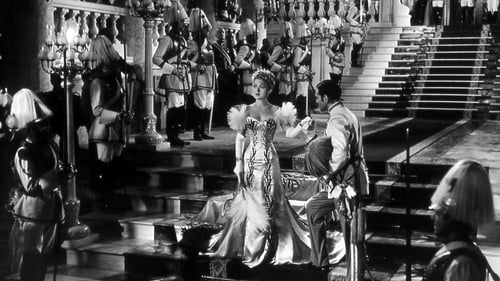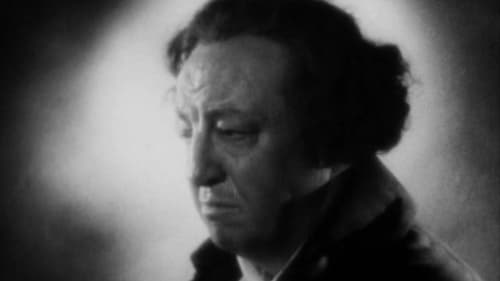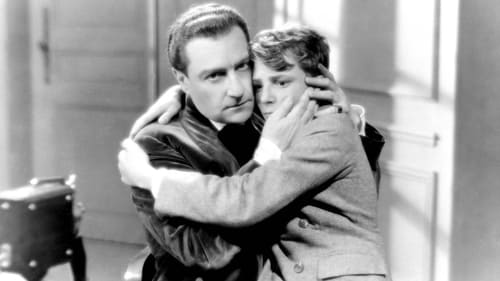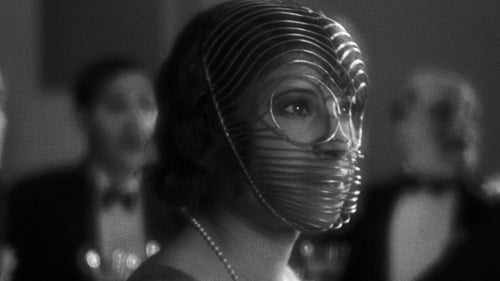
Le comte Chotek
An Austrian prince's doomed love affair with a Czech countess sparks turmoil across Europe.

Antonin Rousselier
Nine Bachelors is a 1939 French comedy film directed by Sacha Guitry and starring Guitry, Max Dearly and Elvire Popesco.[1] An opportunist dreams up a new scheme to make money when the French government passes a law forbidding foreigners from living in France. It's French title is Ils étaient neuf célibataires.

The notary
Eusèbe Bonbonneau, a solicitor's clerk, learns one day that a candidate bearing his name runs for election as a member of parliament. In fact Frazier, a crooked businessman, has urged an accomplice to impersonate Eusèbe, in order to obtain, through this straw man, authorizations for the creation of a casino in Sanceau-les-Nains and to make big money out of it. Eusébe decides to go to Paris to investigate. In the capital he meets Mariska, an exuberant actress who encourages him to try to get elected. As a result, thanks to her the true Bonbonneau becomes a member of parliament and the crook's accomplice is arrested. But Frazier is not impressed and, changing tactics, he starts manipulating Eusèbe.

L'Abbé Maudoux
The history of one of France's most famous streets is retold, featuring multiple performances from Guitry himself.

The workers Legendre and Martinet have won a large sum in the national lottery. Instead of squandering it, they had the good idea to invest it in industry. Happy in business, they soon find themselves at the head of a fortune. But their characters are very different. Legendre, who is brave and honest, narrowly escapes the malevolence of a couple of harlots. Martinet, his former work companion, has become a crooked and formidable financier. Both will face each other in court, the honesty of the first finally triumphing over the greed of the second.

Anton Schindler
Lyrical biography of the classical composer, depicted as a romantic hero, an accursed artist.

Adolphe Bellanger, son père
After being left for another man by his wife, Charles Bellanger raises his only son to fear and suspect women. Years later, such an education is bearing fruit.

L'évêque
King John IV of Cerdania, who knows monarchs are a vanishing race but who plays his royalty role in state council or boudoir to the hilt, is in Paris to sign a treaty, and becomes enmeshed in intrigue with an actress, Therese Mannix and involved in a bit of cuckoldry with YouYou Bourdier, the ex-seamstress wife of a French senator, who is un-awed by money, power or the King's kisses. For his part, her husband, Senator Bourdier, is glad to use his wealth, wife and collectivist ideals for social position, in spite of his democratic posing.

Secret de Polichinelle roughly translates as Open Secret. The "secret" in question is an illegitimate child, the offspring of young-and-foolish Henri (Bernard Lacret). The baby is adopted by its grandparents, Monsieur and Madame Jouvenol (Raimu and Francoise Rosay). At first taking charge of the child because it is their duty, the Jouvenols come to love the little nipper as if he were their own son. At this point, the film threatens to drown in a morass of sentiment, but the actors and the director manage to stem the bathos with some first-rate comedy vignettes revolving around the care and feeding of the bouncing baby boy.

The gratuitous murder of his father and the misery of the people, aggravated by a succession of bad harvests, lead Gaspard, a great admirer of Mandrin and blacksmith by profession, to revolt. With his companion Samplan, he finds himself at the head of a handful of soldiers dissatisfied with their fate and a band of brigands. They steal money from the rich to give it to the poor, like highwaymen, vindicators with a big heart. In their eyes, things cannot go on like this, in this country which seems given over to the decadence of the nobility and the whims of an indolent king. Gaspard and his troupe are responsible for making it known.

President of the Academy
Guitry reprises his role as Pasteur which he played successfully at the Vaudeville Theatre in 1919.

Le vieux domestique

Le chanteur des rues
A great singer eager to know the love of a sincere woman, in love with him and not with his glory, disguises himself as a worker. He meets the girl of his dreams. A commitment takes her away, she tries to kill herself but he comes back in time and they can love each other without constraint.

Nicknamed "the Aristo", a friendly tramp, once a very rich and influential man, will one fine day rediscover the splendor of his past...

The error of an examining magistrate forever tears apart a happy and united family.

A poor disgraced girl, belonging to a gang of criminals, is morally transformed by a cosmetic operation that makes her beautiful.

One of the most popular melodrama films directed by Abel Gance. A paranoide, fanatical and obsessively jealous husband obducts his own son to bully his wife.

Count Brodelet de Surville
Chouchou leads a happy life between his comrades and his fiancée. But his father wants him to marry a rich American in love with him. Chouchou refuses and looks for work in order to be independent and to marry the one he loves.

Le commandant
Shades of Othello loom in this engrossing exploration of class, race, and murder set on an ocean liner. Young Dainah encounters an engineer onboard who mistakes pleasantries for flirtation. When she disappears the next day, suspicion spreads not only to the engineer but also to Dainah's husband.

An unemployed youth pretends to be the long lost son of an elderly industrialist but after helping the man with his business decides to confess his dishonesty and go away.

Céleste Noménoé, a provincial actor, comes to Paris for an inheritance. He also gets a part in a movie. The managers of a music-hall notice him. He takes the stage name of Grock.

Directed by René Leprince.

















